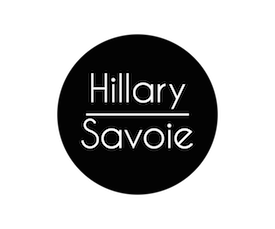You would think I would know better by now than to be surprised by much of anything. But, here I am, yet again feeling in awe of the gains Esmé has been making lately. As I have been thinking about writing this post I have found that it is hard to put my finger on exactly what it is. There is something about the quality of the change in her over the last few months that I have been struggling to articulate. It is as if she is again just more, I don’t know, here. More present.
It is the way she looks at people. The planfulness of her movements. The effort behind the sounds she produces. The interest in her surroundings. Her demands on the people who she keeps around her to do her bidding.
There is a spirit behind these things that is hard to quantify. All I can say is that it is as if she is less in that imaginary world I know she goes to, that other place she inhabits parallel to this one. Instead she is more here, more present with not only me, but most other people as well.
There are identifiable gains, too, of course. But they seem small when I write them–small in comparison to what the feeling is behind them. But, yes, there are gains: She can walk on the treadmill in the Lite Gait system for longer, she goes faster. She likes the freedom of moving in it without our hands holding her as she she bounces and dances and laughs on the trampoline. I can see in her face that she is excited to put on the harness and get to work. And I can see that she is proud of herself when she is done.
In the pool during therapy, her occupational therapist and I have developed a game of catch with Ez.
Playing “catch” with a small child is something that typically comes pretty early, but Ezzy never has been able (or interested?) to play along. I watch the delayed eight-month-old in the pool push the ball to her father so naturally, so easily that it is actually physically painful for me to observe. But we continue with our game of catch, holding Ezzy’s arms over her head for her, squeezing the ball between her hands and my own. Recently, Ez started initiating raising her hands over her head and then again to throw the ball. It is almost little more than a flinch, but it is there. It is movement forward.
Her words are coming faster. We all agree that she is saying some approximation “Ezzy’s room,” “Kitchen,” “Daddy” and a few other things. These words seem to come and go a bit…and I know we aren’t fully understanding some of the other things she is saying repeatedly. About a week ago I’d left her in her carseat for a few extra moments while I unloaded groceries. She was in her seat, the minivan door was open as was the door into the garage–so I could see and hear her. She started to fuss. I said, “I’m coming sweetie…” and she responded with what was, in my humble opinion, undoubtedly, “OUT!” She has said it a few more times, but will not repeat it when I ask.
She is using a button now to request turn-taking with her toys–something her (fantastic, wonderful, lovely) teacher Dorothy has been working on for months. When it is Dorothy’s turn with the toy Ez must touch Dorothy’s arm to get her attention and, when Dorothy offers her the button, she presses the button so it says, “I want a turn.” And then Esmé has her turn. A few months ago attempting to restrict access to a toy would have lead to a total meltdown. But these days she’s taken so well to this exchange that she has carried over some of this behavior to other interactions: reaching for my arm to get my attention when she wants something.
And her body is just much more coordinated and strong. She is crawling places with a real sense of purpose, without fatiguing or getting distracted along the way. She is noticing how her behaviors create responses in other people. She is louder. More insistent.
I love watching my willful daughter assert herself on the world (even as I wish she would do a wee bit less of it by yanking my hair and biting me). As she makes these gains I am struck, as always, by her power. I am struck by how much people like being around her–how attached all of her therapists are to her, how some of her little friends at school seem about to explode with joy over seeing her, how so many people in public cannot help but smile when they see her dancing body in her bright red chair.
As always I don’t know where these gains will lead. I don’t know if her demands of “OUT” will go the way of “Night Night, Maman,” or if she will ever roll a ball to me of her own volition, or if she will be able utilize buttons to communicate independently, rather than mouth them and hit them obsessively. These tiny surprising gains may slip between our fingers…it has happened before.
I just don’t know. We never know.
It isn’t to be assumed one way or the other with Esmé. There’s no sense to be made that way.
The only sense to be made is in the surprise–in the awe–of watching her continuing to become her…each and every day.



When you wrote about the game of catch with your daughter, and how it was painful to watch the father play with his 8 month old, it made me think of my son at church. All 3 of my sons have autism, but Anwar is the oldest. I brought him to a church that a had children's service during the adult sermon. The other children lined up nicely, quietly to go downstairs with their children, leaving the adults in the pews. I went with Anwar and at first, he was ok with the singing. But when we got to the table for crafts he started to bite his hands, trying to bite me, hitting his hands on the table and yelling. I got up and took him for a walk around the downstairs area and then outside to the car. I was blinking my eyes rapidly to keep from crying. And yet, there was reason to be encouraged, because he was able to sit and I think enjoy the songs. The children were nice and eager to know him and some of the signs he used to communicate. We went back the next Sunday. When I'm not too tired, we go to that Church. It's still challenging, but he's able to stay a little longer or make eye contact with a child, or say a word, when we go.